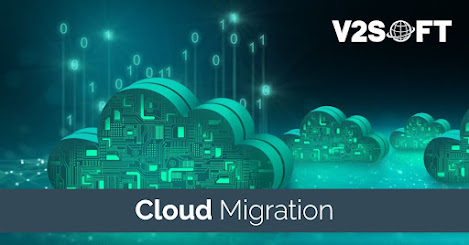What is Cloud Migration?
Cloud migration is the process of moving workloads and data from an on-premises environment to a cloud infrastructure. Cloud migration is not a one-time event. It can be a continuous process that needs to be managed over time. Some organizations might find it easier to migrate their workloads and data at different stages in the life cycle of their business.
The major benefit of migrating to the cloud is that it reduces cost, complexity, and risk for organizations by delivering a more predictable level of performance with lower costs for hardware, software, maintenance, and support.
When Should You Consider Cloud Migration?
This is a question that many businesses struggle with. But there are certain situations when it is necessary to consider cloud migration.
There are two main reasons why businesses should consider moving to the cloud. The first reason is that you need more space for your data, and the second reason is that you need a better way to manage your digital assets.
When you are considering migrating your business to the cloud, it’s important to make sure that you have all your bases covered. You should ensure that you have a solid backup strategy in place, and make sure that you know how much data will be uploaded before beginning the process of migrating.
It is important to understand the pros and cons of migrating from your on-premises system to the cloud. There are many considerations that you should consider before making the decision.
Moving your company to the cloud can have many benefits. The biggest benefits of moving your company to the cloud are that you can cut costs and increase productivity.
The biggest benefit of moving your company to the cloud is
that they will be able to save money by using the same infrastructure for their
business as they use for their usage. They will also be able to take advantage
of a wide range of services and features, such as email, collaboration tools,
and file storage.
When should you consider cloud migration?
- If your current system is too old, it may not be able to handle the workloads of your company.
- If your company has a complicated IT infrastructure, it might be easier to manage in a cloud environment.
- You can migrate more easily if you have an offsite backup solution in place.
Before migrating your company to the cloud, you should ask yourself these questions:
- What are my business needs?
- What are my IT needs?
- How will I be able to manage costs and workloads?
- Do I have any other considerations that need to be considered before moving on with this project?
5 Key Considerations for a Successful Cloud Migration:
Cloud migration is no easy task. There are a few key considerations to be made before you decide to migrate your business to the cloud.
1. Security: Cloud migrations are typically more secure than on-premises solutions because they leverage industry-standard technologies and security practices.
2. Scalability: Cloud migration is a scalable solution for businesses with high traffic, scalability, and data growth needs in their current infrastructure.
3. Cost Savings: Migrating to the cloud can help companies save significant amounts of money by reducing expenses associated with hardware, software, and IT services management as well as freeing up more time for employees to focus on core competencies like innovation and customer service
4. Flexibility: With the flexibility of cloud computing solutions, businesses can easily scale their infrastructure without the need for additional investments.
5. Enhanced Risks: The security of the cloud can be enhanced by selecting a provider with a best-in-class cloud security offering.


Comments
Post a Comment